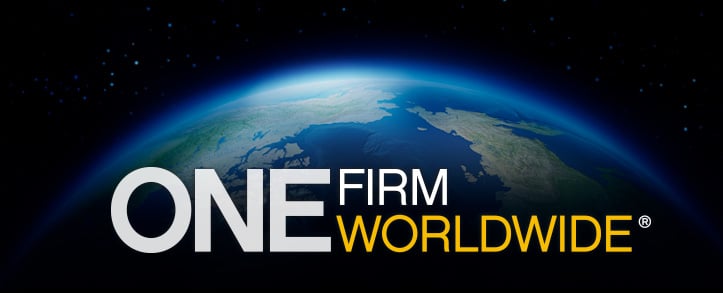
美国安进公司(Amgen)新起诉以寻求关于美国生物性产品价格竞争与创新法案(BPCIA)下参与专利信息交换的声明(英文版)
In the most recent lawsuit involving the Biologics Price Competition and Innovation Act ("BPCIA"), Amgen filed a complaint on March 4, 2016, seeking a declaration that Sandoz has failed to participate in the BPCIA's information-exchange provisions and an order compelling Sandoz to do so. Notably, the complaint does not include a claim for patent infringement based on Sandoz's application for FDA approval to market a biosimilar version of the drug product Neulasta®. Rather, the complaint is self-described as "an action to enforce the patent-dispute-resolution provisions of the BPCIA." This is a departure from Amgen's February 26, 2016 complaint against Sandoz (concerning the immunosuppressant Enbrel®), in which Amgen alleged similar behavior by Sandoz but brought only claims for patent infringement.
The BPCIA established a unique and elaborate process for information exchange between the biosimilar applicant and the reference product sponsor ("RPS") to resolve patent disputes. The Federal Circuit summarized the process, which has become known as the "patent dance," as follows:
Under that process, codified at 42 U.S.C. § 262(l), the biosimilar applicant grants the RPS confidential access to its aBLA [abbreviated Biologics License Application] and the manufacturing information regarding the biosimilar product no later than 20 days after the FDA accepts its application for review. Id. § 262(l)(1)-(2). The parties then exchange lists of patents for which they believe a claim of patent infringement could reasonably be asserted by the RPS, as well as their respective positions on infringement, validity, and enforceability of those patents. Id. § 262(l)(3). Following that exchange, which could take up to six months, the parties negotiate to formulate a list of patents ("listed patents") that would be the subject of an immediate infringement action, id. § 262(l)(4)-(5), and the RPS then sues the biosimilar applicant within 30 days, id. § 262(l)(6). That information exchange and negotiation thus contemplates an immediate infringement action brought by the RPS based only on listed patents.
Amgen Inc. v. Sandoz Inc. In Amgen, the Federal Circuit held that a biosimilar applicant (Sandoz in that case as well) did not violate the BPCIA by failing to disclose its application and manufacturing information as set forth in § 262(l)(1)-(2).
The newly filed Amgen complaint raises two related but separate issues: (i) whether a biosimilar applicant must participate in the patent selection procedures set forth in § 262(l)(4)-(5) after providing the RPS with its application and manufacturing information, as well as its contentions as to invalidity, unenforceability, and noninfringement, and (ii) whether an applicant's decision not to participate compels the RPS to file a patent infringement lawsuit under § 262(l)(6) prior to the negotiation and exchange of patent lists as set forth under § 262(l)(4) and, if necessary, § 262(l)(5).
Specifically, Amgen has alleged that Sandoz filed an aBLA with the FDA "in order to obtain approval to commercially manufacture, use, offer to sell, and sell, and import into the United States the Sandoz Pegfilgrastim Product, a biosimilar version of Plaintiffs' NEULASTA® (pegfilgrastim) product." According to Amgen, "NEULASTA® is indicated to decrease the incidence of infection in patients receiving myelosuppressive anti-cancer drugs."
As it did in its Enbrel® complaint, Amgen asserts that Sandoz engaged in the initial stages of the "patent dance" by providing Amgen access to documents Sandoz "represented to constitute its aBLA and information relating to the manufacturing process for the Sandoz Pegfilgrastim Product." In response, and pursuant to § 262(l)(3)(A), Amgen provided Sandoz with a list of two patents (U.S. Patent Nos. 8,940,878 and 5,824,784) "for which it believed a claim of patent infringement could reasonably be asserted against the Sandoz Pegfilgrastim Product." In response, Sandoz provided "contentions that the '878 and '784 patents are invalid, unenforceable, or will not be infringed by the commercial marketing of the biological product that is the subject of the Sandoz aBLA."
Sandoz, however, "also stated that it no longer wished to follow the strictures of the BPCIA because it effectively had Plaintiffs' positions pursuant to 42 U.S.C. § 262(l)(3)(C)" and that it "was 'waiving' its right to receive Plaintiffs' statement pursuant to 42 U.S.C. § 262(l)(3)(C), and declared that negotiations pursuant to 42 U.S.C. § 262(l)(4) and (5) [regarding the identity of patents that would be subject to a patent infringement suit] were unnecessary." Amgen further alleges that Sandoz "then insisted that Plaintiffs file an action for patent infringement pursuant to 42 U.S.C. § 262(l)(6) within 30 days, i.e., by March 4, 2016," and if Plaintiffs did not do so, then "the penalty for an untimely suit—that the 'sole and exclusive remedy' for any infringement be limited to a 'reasonable royalty'—applies."
Accordingly, Amgen is seeking a declaration that Sandoz is required to comply with § 262(l)(4) and (5), that Sandoz's failure to comply with those provisions "means there can be no 'immediate patent infringement action' under 42 U.S.C. § 262(l)(6)," and that Amgen's "not filing a patent infringement action by March 4, 2016" does not deprive it "of the remedies for infringement available under 35 U.S.C. § 271(e)(4), including lost profits damages and injunctive relief." Amgen did not assert an alternative claim for patent infringement.
This case highlights yet another dispute between an RPS and a biosimilar applicant as they navigate through the uncharted waters of the BPCIA's patent dance. In attempting to forego Amgen's contentions regarding infringement, validity, and enforceability under § 262(l)(3) and the subsequent negotiation over the list of patents to be litigated, Sandoz is attempting to accelerate the time by which Amgen must file a patent infringement action by as much as 80 days or more, which is significant given reports that Neulasta® generates more than $4 billion in annual revenues.
The current district court case is pending in the Newark division in the District of New Jersey (Civil Action No. 16-cv-01276) and has been assigned to Judge Stanley R. Chesler and Magistrate Judge Cathy L. Waldor. Judge Chesler is one of the designated Patent Pilot Program judges in the District of New Jersey. Congress established the Patent Pilot Program in 2011 to "encourage enhancement of expertise" in patent cases among district judges. The program directs patent cases to specific judges who volunteer to become "pilot judges."
Lawyer Contacts
For further information, please contact your principal Firm representative or one of the lawyers listed below. General email messages may be sent using our "Contact Us" form, which can be found at www.jonesday.com/contactus/.
Matthew J. Hertko
Chicago
+1.312.269.1581
mhertko@jonesday.com
Timothy J. Heverin
Chicago
+1.312.269.4087
tjheverin@jonesday.com
Gasper J. LaRosa
New York
+1.212.326.7885
gjlarosa@jonesday.com
John A. Marlott
New York
+1.312.269.4236
jamarlott@jonesday.com
Jones Day publications should not be construed as legal advice on any specific facts or circumstances. The contents are intended for general information purposes only and may not be quoted or referred to in any other publication or proceeding without the prior written consent of the Firm, to be given or withheld at our discretion. To request reprint permission for any of our publications, please use our "Contact Us" form, which can be found on our website at www.jonesday.com. The mailing of this publication is not intended to create, and receipt of it does not constitute, an attorney-client relationship. The views set forth herein are the personal views of the authors and do not necessarily reflect those of the Firm.





